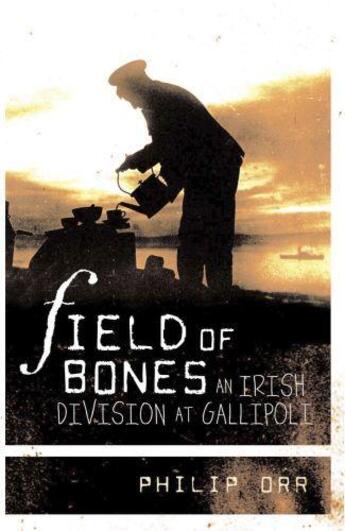-
Nombre de pages : (-)
-
Collection :
(-)
-
Genre :
(-)
-
Thème :
Non attribué
-
Prix littéraire(s) :
(-)
Résumé:
'Masterly and moving . Philip Orr enhances his already high reputation as a military historian for not only illuminating and meticulous command of detail but for a sense of balance and a fair-mindedness too rare in work on the long-neglected history of Irish soldiers in the First World War.... Voir plus
'Masterly and moving . Philip Orr enhances his already high reputation as a military historian for not only illuminating and meticulous command of detail but for a sense of balance and a fair-mindedness too rare in work on the long-neglected history of Irish soldiers in the First World War. Field of Bones is an absorbing study to be pondered by all students of the folly, the foibles, and the fortitude of man.' - Professor Joe Lee 'In this marvellously resonant book, Philip Orr has recovered the history of one of Ireland's great forgotten battles ... Gallipoli was as important a First World War battle for Ireland as the Somme was for Ulster.' - Professor Keith Jeffery During August and September 1915 almost three thousand young volunteer Irish soldiers died on the killing fields of Gallipoli on the Turkish Aegean. A division of Kitchener's Army, at Suvla Bay they fell to gunshot-wounds and shellfire, while thirst, sunstroke and dysentery reduced their chances of survival. Hundreds were burned alive in raging bush-fires. In post-war Ireland political revolution led to the removal of Gallipoli from memory. One popular ballad told the volunteers, 'you fought for the wrong country, you died for the wrong cause, when the greatest war was at home'. Here, in heart-breaking detail, built from letters, diaries and archival sources, is the story of the 10th Irish Division, many of whom still lie today in Suvla Bay's deserted field of bones.
Donner votre avis














